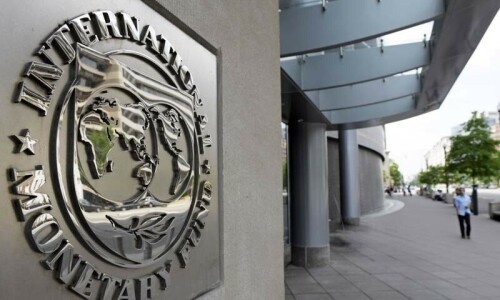While on the topic of Kishore Kumar, one cannot forget that no less a composer than maestro O.P. Nayyar employed Rafi to lend his voice to Kishore more than once. In film Ragni, the semi-classical number 'Man mora bawra' was picturised on Kumar, who was an in-demand actor at the time. It was recorded, however, in the well trained voice of Rafi.
That he has recorded more film songs than any other male singer in the subcontinent, even though he passed away early, is a tribute to his many-sided musical genius. From the time he dethroned the velvet-voiced Talat Mahmood in the second half of the 1950 to the early 1970s when Kumar became the numero uno singer, Rafi was at the peak of his popularity. Interestingly, Rafi's renditions never lost their charm. In fact, he had staged a comeback and his songs outnumbered the ones recorded by Kishore in Binaca Geetmala, the most popular hit parade of the 1970s. But as bad luck would have it, death claimed Rafi before he reclaimed his crown.
As one who had watched and heard him live way back in 1964 at a function in aid of the Anjuman-e-Islam School, organised by Dilip Kumar, a former student of the institution, I could see that the man sang effortlessly in the presence of a large audience at Bombay's Birla Hall (it wasn't Mumbai back then). He sang four numbers but my only regret is that they were all light numbers. One would have loved to listen to his wistful numbers live.
The other day, during a phone conversation, crooner Nayyara Noor and I recalled Rafi's plaintive rendition of Dagh's ghazal 'Ghazab kiya tere waaday pe etbar kiya.' We compared it with Mehdi Hasan's version of the same poem and agreed, without being unjust to the ghazal king, that Rafi had infused his rendition with a depth of feeling and wistfulness that were nowhere to be found in Hasan' recording.
As I think of Rafi, I am reminded of the period when on the issue of royalty for the singer, he disagreed with other singers led by Lata Mangeshkar and therefore incurred her wrath. She then decided not to record duets with him. As it turned out, the loss was hers for while composers got them to sing solos, for duets they turned to Suman Kalyanpur, the Lata sound-alike, to keep pace with Rafi. Initially, some music directors tried to get Lata to sing with Mahendra Kapoor, but the latter - a clone of Rafi - was no patch on the original.
Rafi made his debut in Gul Baloch, when he recorded a duet with Zeenat Begum, sometime between 1942, when the film went into production, and 1944, when it was released. The Punjabi movie was produced in Lahore and the composer who gave Rafi a break was Shyam Sunder, a well-known maestro of the 1940s.
Rafi had taken lessons from Ustad Abdul Waheed Khan and his pupil Feroz Nizami. It was Nizami who later gave Rafi a break in the Dilip Kumar and Noor Jehan starrer Jugnu (1947) when he rendered the memorable duet with the melody queen, 'Yahan badla wafa ka bewafai ke siwa kiya hai.'
The rhythm king O.P. Nayyar, a fellow Lahori, in an interview with me in the 1990s said, 'Rafi was a ronay dhonay wala singer before I assigned him breezy numbers for my movies Aarpaar, CID and Mr and Mrs 55.' Nayyar's contribution in adding a new dimension to Rafi's musical personality cannot be challenged, nor can one can dispute what he said about the man himself - 'Rafi, beshak mian aadmi thay' (Rafi was undoubtedly a thorough gentleman).
When a controversy erupted in the letters to the editor columns of the popular magazine Filmfare on who was a greater singer, Rafi or Kishore, the latter put an end to the debate by sending a letter claiming 'Rafi sahib has been the greatest male playback singer of our times.'
As one thinks about Rafi, one concludes that he is still a force to reckon with. Twenty-nine years after his death, we find more Rafi clones than the followers of any other singer. He was indeed a singer's singer, if one may adapt a term used for Edmund Spenser - a poet's poet.









































Dear visitor, the comments section is undergoing an overhaul and will return soon.